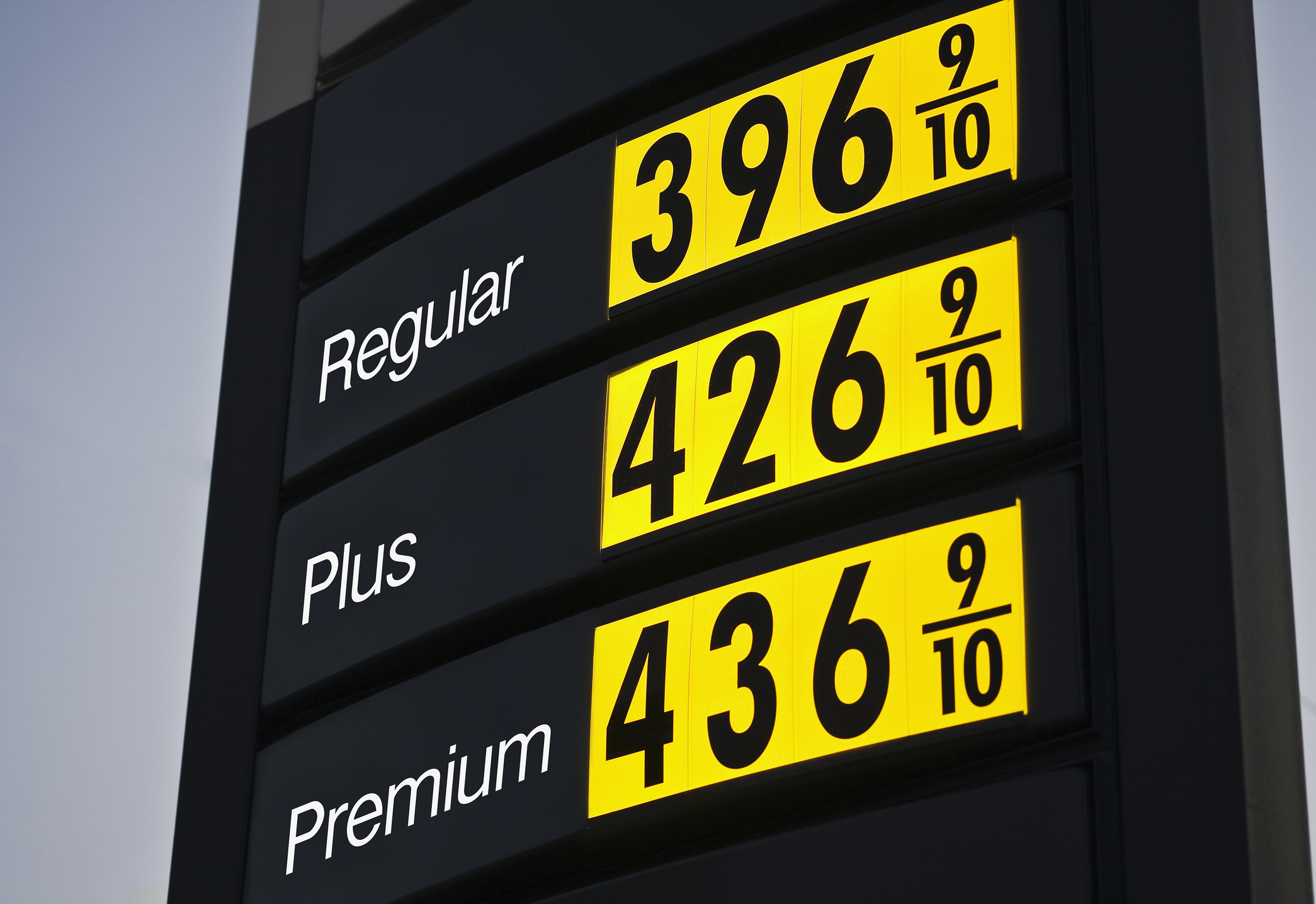Extended-Warranty Warning
You must read the fine print on your car warranties.

Profit and prosper with the best of Kiplinger's advice on investing, taxes, retirement, personal finance and much more. Delivered daily. Enter your email in the box and click Sign Me Up.
You are now subscribed
Your newsletter sign-up was successful
Want to add more newsletters?

Delivered daily
Kiplinger Today
Profit and prosper with the best of Kiplinger's advice on investing, taxes, retirement, personal finance and much more delivered daily. Smart money moves start here.

Sent five days a week
Kiplinger A Step Ahead
Get practical help to make better financial decisions in your everyday life, from spending to savings on top deals.

Delivered daily
Kiplinger Closing Bell
Get today's biggest financial and investing headlines delivered to your inbox every day the U.S. stock market is open.

Sent twice a week
Kiplinger Adviser Intel
Financial pros across the country share best practices and fresh tactics to preserve and grow your wealth.

Delivered weekly
Kiplinger Tax Tips
Trim your federal and state tax bills with practical tax-planning and tax-cutting strategies.

Sent twice a week
Kiplinger Retirement Tips
Your twice-a-week guide to planning and enjoying a financially secure and richly rewarding retirement

Sent bimonthly.
Kiplinger Adviser Angle
Insights for advisers, wealth managers and other financial professionals.

Sent twice a week
Kiplinger Investing Weekly
Your twice-a-week roundup of promising stocks, funds, companies and industries you should consider, ones you should avoid, and why.

Sent weekly for six weeks
Kiplinger Invest for Retirement
Your step-by-step six-part series on how to invest for retirement, from devising a successful strategy to exactly which investments to choose.
John Pallay of Mansfield, Ohio, found out the hard way that automobile extended warranties can be a raw deal. Pallay recently wrote to Kiplinger’s to relate his tale of warranty woe: When he bought a used 2002 Pontiac Sunfire nearly three years ago, he also bought a $2,000 extended warranty from National Auto Care (now called NAC). Since then, Pallay writes, he has shelled out $1,400 for repairs -- and his policy has paid just $30. Some parts that needed replacement were excluded from coverage. Other repairs weren’t covered because the breakdown was caused by a noncovered part.
Hit and miss. Extended warranties consistently inhabit top-ten lists of consumer complaints for a good reason: They often make it difficult to cash in. The language may, for example, obfuscate what is covered and what isn’t so that you end up footing the bill instead of the company backing the contract. The fine print may include a per-item deductible instead of a per-visit one, meaning you could rack up several deductibles in one trip to the shop. Diagnostic fees may not be covered if the part that’s found to be causing the problem isn’t covered. The reimbursed labor rate may be less than what your shop charges. And the warranty may be subject to termination if you don’t follow its maintenance schedule.
Some high-profile warranty companies have gone bankrupt, leaving customers in the lurch. And some 40 state attorneys general have investigated a massive phone and direct-marketing campaign that was waged last year. The companies involved sent out mailings that appeared to be from a car dealer or manufacturer to sell often-worthless warranties.
From just $107.88 $24.99 for Kiplinger Personal Finance
Become a smarter, better informed investor. Subscribe from just $107.88 $24.99, plus get up to 4 Special Issues

Sign up for Kiplinger’s Free Newsletters
Profit and prosper with the best of expert advice on investing, taxes, retirement, personal finance and more - straight to your e-mail.
Profit and prosper with the best of expert advice - straight to your e-mail.
If those caveats don’t scare you off, the high cost of extended warranties may. According to F&IMagazine, a publication for auto dealers, a typical extended warranty costs an average of $1,790, and $795 of that is profit for the dealer. And in a 2007 survey by Consumer Reports of new-car buyers who bought extended warranties, 42% never used their contracts because their vehicles didn’t need repairs that weren’t covered by the factory warranty.
Should you ever buy one? If you plan to keep your car for no more than a year or so after the factory warranty ends, an extended warranty is a losing proposition. But if you plan to keep your vehicle till the wheels fall off, or you’re buying a used luxury car outside of a certified pre-owned program, an extended warranty might make sense. You will pay less if you purchase it when the car is new. For example, a top-of-the-line contract for a new Mercedes E350 from EasyCare -- an administrator for several manufacturer plans that also sells warranties to individuals -- would cost $2,527 and cover repairs until the odometer read 100,000 miles. The same coverage for a used 2005 E-class Mercedes with less than 60,000 miles would cost $3,082 and cover another 50,000 miles.
If you take the plunge, shop hard. Philip Reed, of Edmunds.com, recommends manufacturer plans over third-party ones. They may cost more, but they tend to have fewer loopholes. With a third-party contract, check out the administrator’s complaint record with the Better Business Bureau. For example, NAC is rated B and is not accredited by the BBB, but EasyCare gets an A+ and is accredited. That means the company has committed to make a good-faith effort to resolve complaints.
Read the contract -- all of it. Also be sure to steer clear of warranties that require you to pay for repairs upfront; it's better if the dealership is paid directly. Finally, haggle for a lower price. The Consumer Reports survey found that 75% of people who negotiated won a discount.
If you do sign but develop buyer’s remorse, don’t throw up your hands. In most states, you have the right to cancel within 30 days of signing a contract if you haven’t used the policy.
Profit and prosper with the best of Kiplinger's advice on investing, taxes, retirement, personal finance and much more. Delivered daily. Enter your email in the box and click Sign Me Up.

-
 Betting on Super Bowl 2026? New IRS Tax Changes Could Cost You
Betting on Super Bowl 2026? New IRS Tax Changes Could Cost YouTaxable Income When Super Bowl LX hype fades, some fans may be surprised to learn that sports betting tax rules have shifted.
-
 How Much It Costs to Host a Super Bowl Party in 2026
How Much It Costs to Host a Super Bowl Party in 2026Hosting a Super Bowl party in 2026 could cost you. Here's a breakdown of food, drink and entertainment costs — plus ways to save.
-
 3 Reasons to Use a 5-Year CD As You Approach Retirement
3 Reasons to Use a 5-Year CD As You Approach RetirementA five-year CD can help you reach other milestones as you approach retirement.
-
 10 Things You Should Know About Buying a Car Today, Even if You've Bought Before
10 Things You Should Know About Buying a Car Today, Even if You've Bought BeforeIf buying a car is on your to-do list, and it's been a while since you went shopping for a new one, this guide will help avoid any nasty shocks in the showroom.
-
 Get the Best Car Deal in Retirement: Here's the Trick
Get the Best Car Deal in Retirement: Here's the TrickPlanning on shopping for a new car this Labor Day weekend? Here’s how to haggle for a better price, even though you're retired.
-
 7 Gas-Saving Tips That Actually Work
7 Gas-Saving Tips That Actually WorkThese are gas-saving tips that will actually work for you and your car this year.
-
 Want to Lease an EV? The Tax Credit 'Loophole' for That Is Going Away Soon
Want to Lease an EV? The Tax Credit 'Loophole' for That Is Going Away SoonTax Credits If you are deciding whether to lease or buy an electric vehicle, here is what you need to know about how the EV lease tax credit works now that it will be eliminated under Trump's new tax law.
-
 Car Buying in a Topsy-Turvy Market
Car Buying in a Topsy-Turvy MarketYou need a new car? Good luck with that! What should you do? We've got some answers.
-
 Watch Out for Flood-Damaged Cars from Hurricane Ian
Watch Out for Flood-Damaged Cars from Hurricane IanBuying & Leasing a Car In the wake of Hurricane Ian, more flood-damaged cars may hit the market. Car prices may rise further because of increased demand as well.
-
 Car Buyers: The 3-Day Grace Period Is Just a Myth!
Car Buyers: The 3-Day Grace Period Is Just a Myth!Buying & Leasing a Car Many car buyers think they have three days after making a purchase to return a car. Here’s where they’re going wrong, and what they should do instead to get a decent used car.
-
 PODCAST: Car-Buying in an Inflated Market with Jenni Newman
PODCAST: Car-Buying in an Inflated Market with Jenni NewmanBuying & Leasing a Car With cars both scarce and expensive these days, what to do if you want – or need – a new ride? Car-buying strategist Jenni Newman of Cars.com shares some tips. Also, more on the magical 9% savings bond.